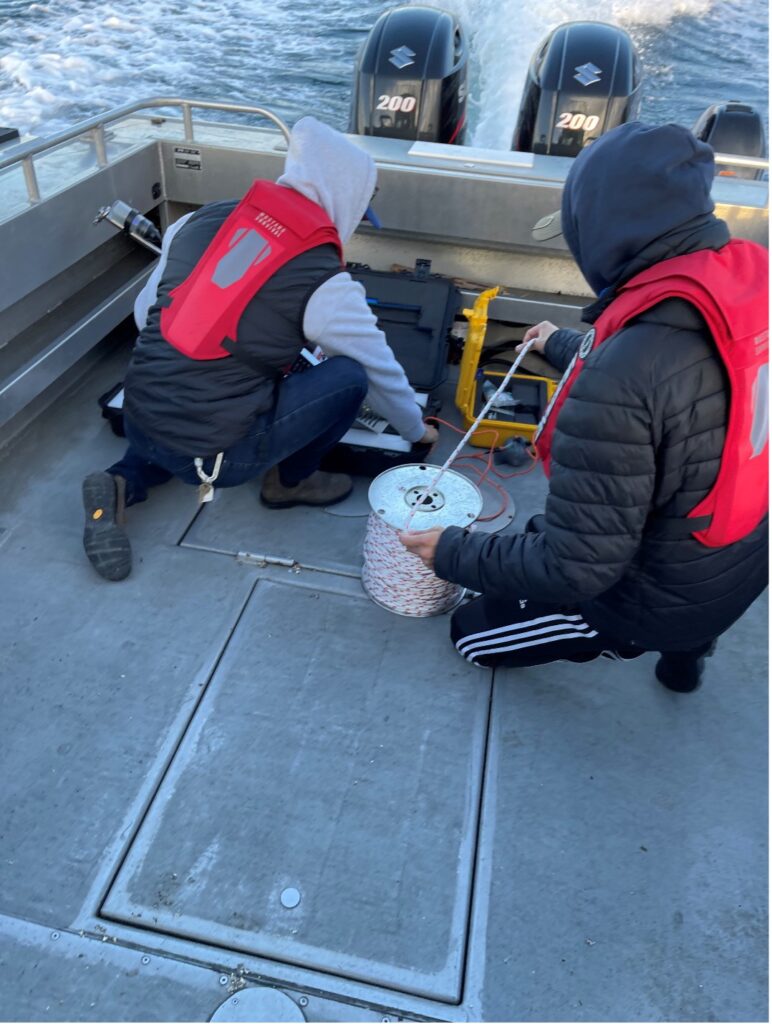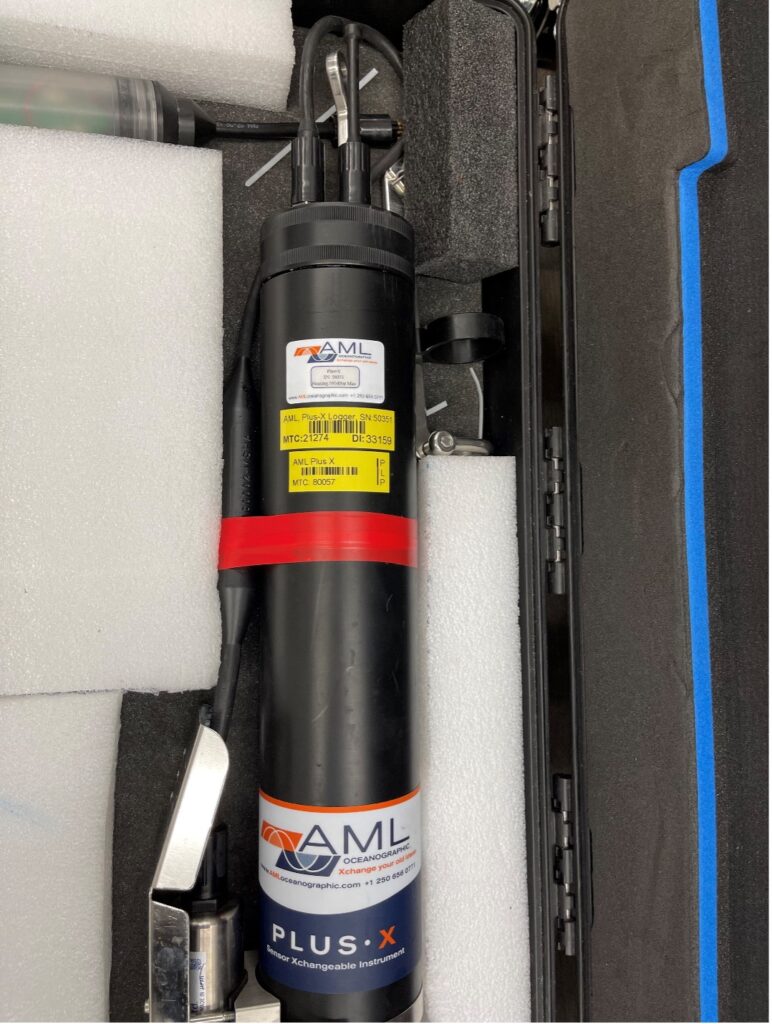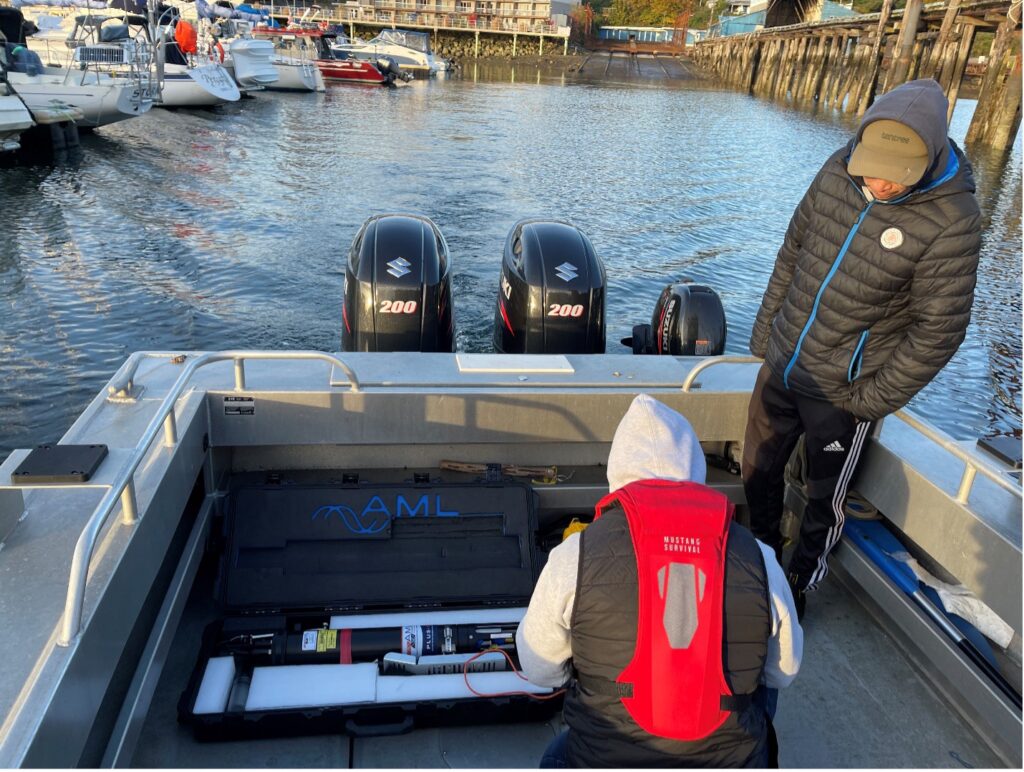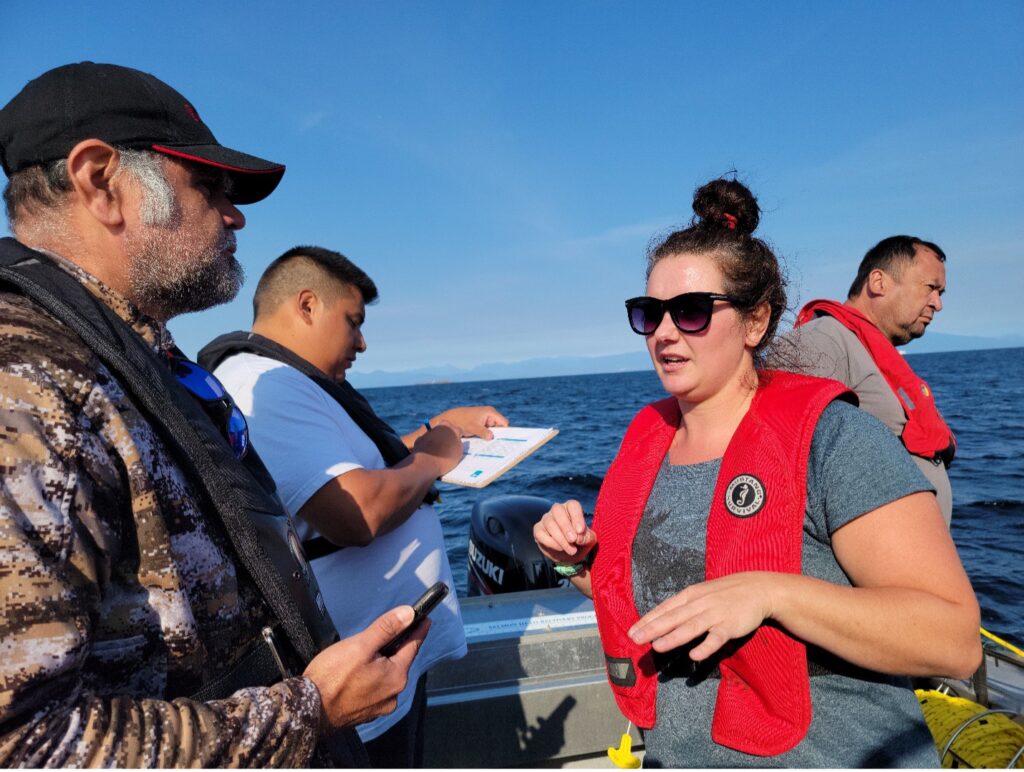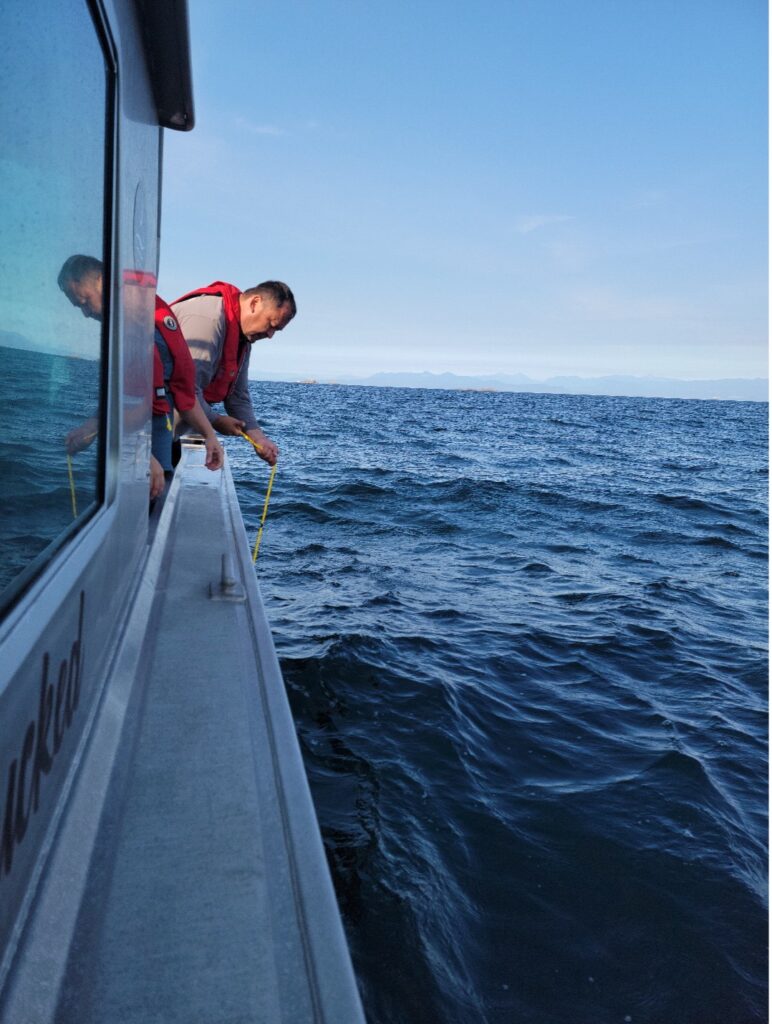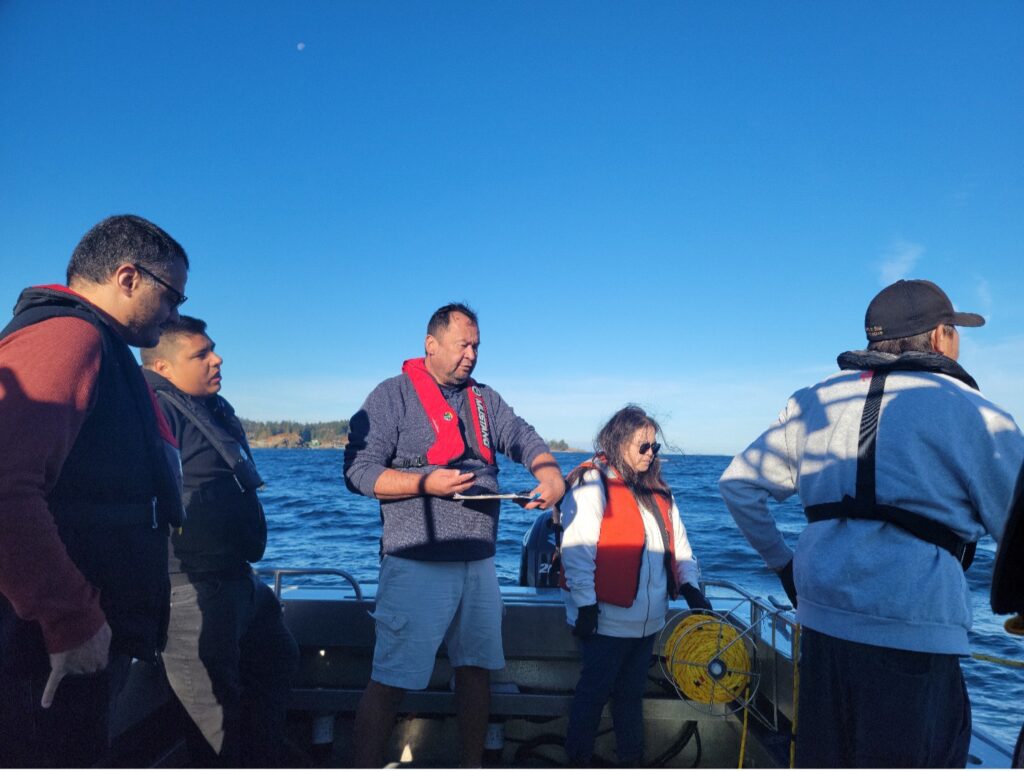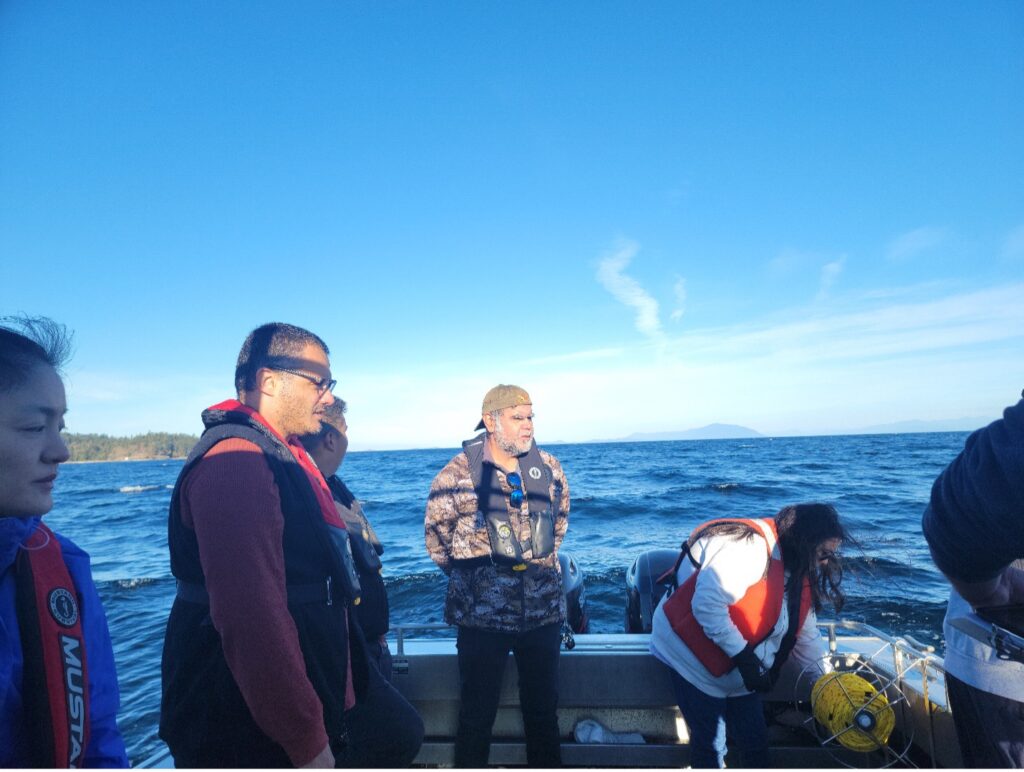In a pioneering partnership with Oceans Networks Canada, the Snuneymuxw First Nation has embarked on a critical initiative to monitor and understand marine water quality using state-of-the-art CTD scanner technology. This collaboration provides essential data on salinity, toxins, and oxygen levels and contributes to a collective understanding of the impacts of climate change on the Salish Sea.
The CTD scanner, equipped with specialized probes, measures crucial water quality parameters, offering a comprehensive snapshot of the marine environment. The Snuneymuxw First Nation and Oceans Networks Canada conduct these water quality assessments twice a month, utilizing the CTD scanner to gather data at various depths.
For the Pacific Salmon Foundation, water quality samples are collected at six distinct locations within the Snuneymuxw traditional territory. These samples are sent to a laboratory, where baseline water quality data is extracted. The Oceans Network Portal is the central repository for storing this valuable data, accessible to stakeholders such as the Department of Fisheries and Oceans (DFO), Transport Canada, and other relevant bodies.
This collaborative water quality monitoring initiative is vital for understanding the impacts of climate change on the Salish Sea. Regular water quality assessments help unravel the complexities of changes in water temperatures, acidity, and the overall state of the Salish Sea. The collective effort of the Snuneymuxw First Nation, DFO, Transport Canada, and other stakeholders aims to comprehend these dynamics and guide sustainable decision-making.
The Snuneymuxw First Nation’s commitment to this initiative extends beyond data collection. It seeks to understand environmental impacts, combining traditional knowledge with modern science. For instance, the disappearance of a kelp bed prompts a collaborative response to revitalize it, showcasing a holistic approach to marine conservation.
In conclusion, the partnership with Oceans Networks Canada in marine water quality monitoring demonstrates a commitment to environmental stewardship and proactive climate change response. By leveraging advanced technology, traditional knowledge, and collaborative data sharing, this initiative monitors the health of the Salish Sea and empowers communities to contribute to its revitalization and preservation actively.
